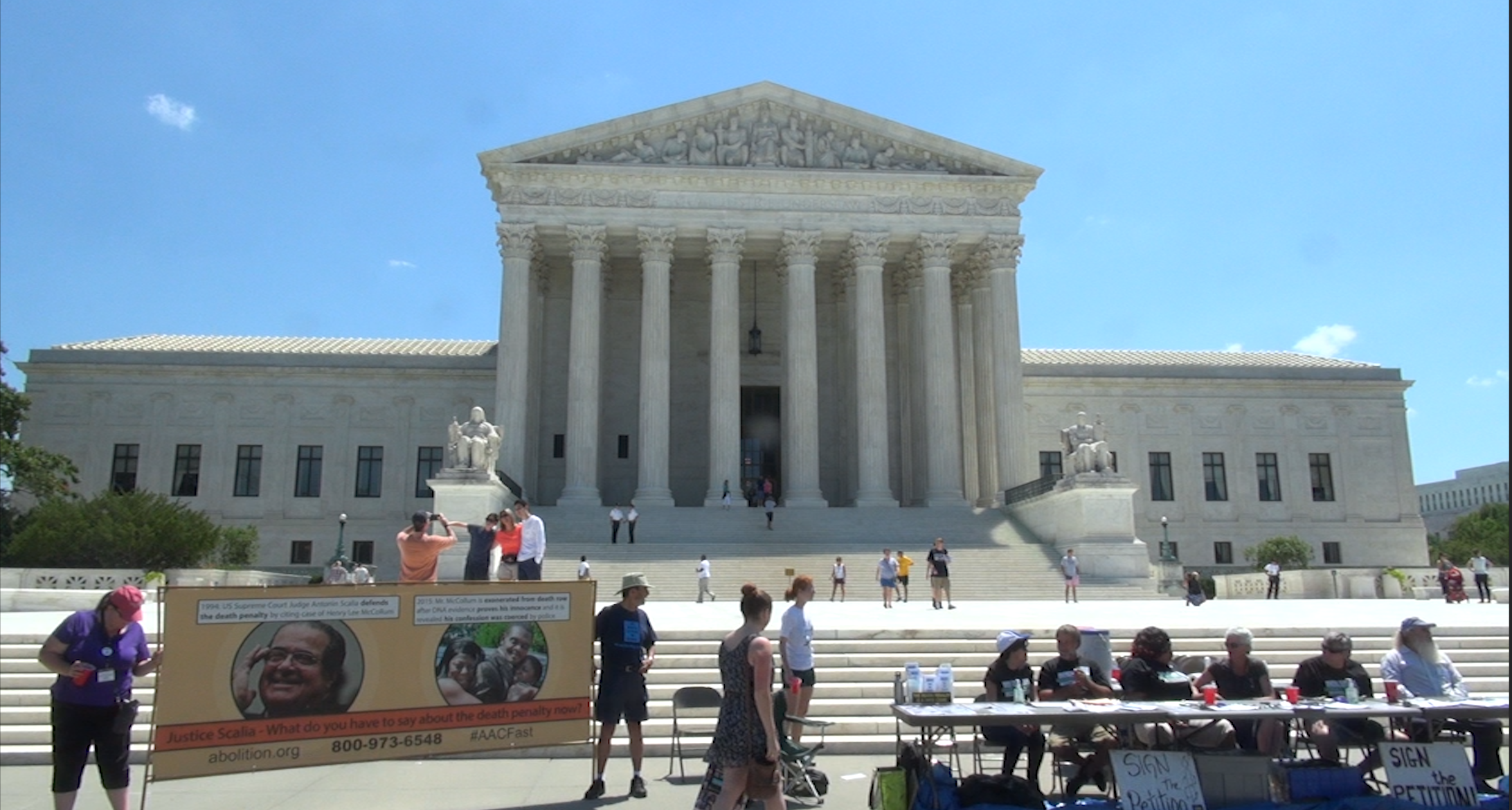WASHINGTON – Delia Perez-Meyer of Austin, Texas made sure she was on the steps of the Supreme Court when the verdict in the Glossip v. Gross lethal injection case was read. She came all the way to Washington to hear the ruling because she has a brother who is on death row at the Polunsky Unit in Polk County.
In a 5-4 decision, the high court upheld a lower court opinion that lethal injection, using midazolam, does not violate the Eighth Amendment, barring cruel and unusual punishment.
“It’s just an atrocity that we continue to kill our own citizens in our own country,” Perez-Meyer said. “And as far as the decision is concerned I’m extremely disappointed. I’m very saddened. It’s just a really bad day in history.”
In the immediate aftermath of the Supreme Court decision, experts said the case marked a continuation of a larger national conversation about the place of the death penalty in society as a whole.
Richard Dieter, senior program director at the Death Penalty Information Center, said the ruling would not halt the on-going debate about capital punishment.
“…Each execution will be closely watched,” Dieter said. “This case doesn’t end the debate about lethal injection or even this drug. It just says on the evidence so far we’re not going to strike it down. Let’s see what happens…it’s an experiment.”
Oklahoma, along with other states, will probably begin scheduling executions soon, Dieter predicted.
Some experts are looking closely at the views of justices Ruth Bader Ginsburg and Stephen Breyer, who questioned the constitutionality of the entire death penalty.
But Kent Scheidegger, legal director of the Sacramento-based Criminal Justice Legal Foundation – and a death penalty supporter — said he didn’t think opponents of capital punishment would gain much traction in the foreseeable future.
“There are two justices who’ve bought into the argument that it shouldn’t be, but that’s not a majority, or anywhere close to a majority, so the death penalty will continue,” Scheidegger said in a phone interview.
He also believes that there is a humane alternative for lethal injections. “The preferred drug for a painless death is pentobarbital…that’s what veterinarians use every day… ” Scheidegger said, “…To the extent that there is an issue with executions, it is the people who have cut off access to pentobarbital who are to blame for it…”
Video published in conjunction with

